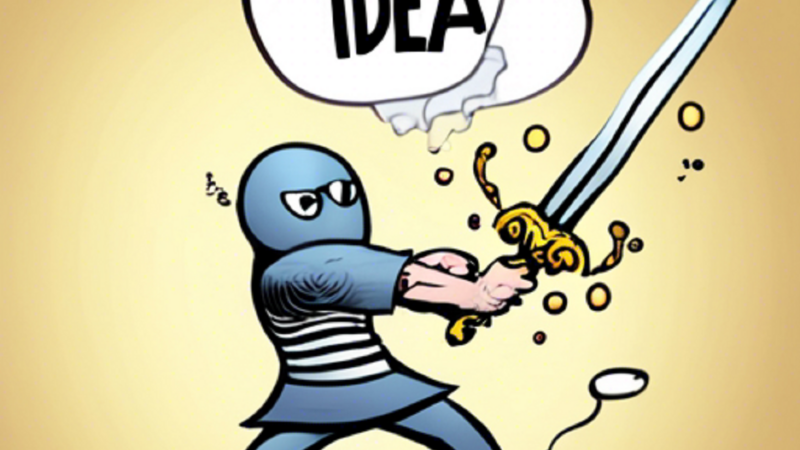

It is often said that "you can't kill an idea." Those who quote the saying usually do so to suggest you cannot defeat an ideology through the use of force. Thus, if the ideology has broad enough support, you have to accommodate it—at least to some significant extent.
This truism has recently been invoked in regards to Israel's war against Hamas. For example, top European Union diplomat Joseph Borrell warns that "Hamas is an idea and you don't kill an idea." John Sawers, former head of Britain's MI6 intelligence agency, similarly claims "you can kill individuals, you can't kill an idea." I have occasionally seen seen this trope invoked with respect to Russia. Even if Putin suffers a defeat in Ukraine, it is said, we can't kill the idea of Russian imperialist nationalism.
Such claims are false, or at least greatly overblown. Coercion can and often does kill ideas! But before going further, I should emphasize I do not mean to suggest that all ideological conflicts can and should be settled by force. Within liberal democracies, the best response to evil ideologies is usually a combination of constitutional constraints on government power, and suasion.
Even when large-scale force is both effective and necessary (as is sadly often true in dealing with terrorists and authoritarian regimes), it may be better coupled with other means of suasion—sticks complemented by carrots. Finally, nothing in my argument suggests that "anything goes," even in conflicts with the most abhorrent of ideologies. Minimizing harm to innocent civilians is a moral imperative, even in cases where it may not be strategically necessary.
Taken literally, the claim that you cannot kill an idea is undeniably true. Ideas have no physical existence, and therefore cannot be destroyed by physical force. But force can and often does play a decisive role in ensuring that an idea doesn't get implemented. And that has important implications for how we should handle various conflicts, including those facing Ukraine and Israel. Overwhelming force can be a crucial tool.
Most obviously, implementation of an ideology can often be forestalled by killing its adherents. Dead fascists, communists, or radical Islamists cannot do much to implement their ideas. Perhaps their deaths will inspire others to take their places. But that is far from a given—especially, as we shall see, if the cause they espouse suffers a shattering defeat. Moreover, new recruits may lack the experience and skills of their predecessors. If, for example, Israel wipes out the best Hamas fighters or Ukraine decimates the most effective frontline Russian units, their replacements are likely to be less potent. And fear of being killed or wounded like their predecessors may deter many potential recruits from joining up at all.
In addition to personnel, effective implementation of an ideology usually requires institutions. The use of force can destroy those institutions. When the Nazi state was destroyed by the Allies, that made it extremely difficult for surviving Nazis to keep on implementing their ideas. The same goes for the destruction of the nascent Confederate state by the Union, the destruction of the ISIS regime by a US-led coalition, and many other cases. Ideologies whose implementation itself requires large-scale coercion—including fascism, communism, and Hamas' radical Islamism—are particularly in need of institutional support. Thus they are particularly likely to be stymied by the destruction of their institutions.
Sometimes, institutions can be rebuilt. But doing so is a difficult task. And that rebuilding can itself be blocked by the use of force, or the threat of it.
So far, I have outlined ways in which the use of force can kill ideas by blocking their implementation even without changing anyone's mind. The dead cannot carry on the fight for their cause, even if they remained true believers to the end. And even living true believers often have little ability to do so if they lack the necessary institutions.
But history shows catastrophic defeat can greatly reduce the appeal of an ideology, as well. Conversely, victory can boost it. I outlined some of the reasons why in an earlier post on the Russia-Ukraine war:
Historically, victory in war has often boosted support for the ideology of the winners. The triumph of the American Revolution increased support for Enlightenment liberalism on both sides of the Atlantic, in the process advancing causes such as democratization and the abolition of slavery. The Bolshevik Revolution and subsequent Communist victories in the Russian Civil War and World War II greatly increased worldwide support for Marxism. Similarly, Mussolini and Hitler's early successes won new adherents for fascism.
By contrast, the crushing defeat of the Axis in World War II led to a collapse of support for fascist ideology, including even in Germany and Italy. The Soviet Union's defeat in the Cold War (admittedly only partly military) and subsequent collapse greatly weakened the appeal of communism….
Throughout human history, ideologies have risen and fallen in part based on success and failure in military and geopolitical conflict.
Much of this reflects irrational factors in public opinion formation. Victory in war doesn't actually tell us much about the merits of the winner's ideology. Might does not make right…
But in a world where public opinion is heavily influenced by ignorance and bias, people routinely use crude information shortcuts to make political judgments. One such shortcut is the presumption that it's good to be on winning side. If adherents of an ideology prevail in a high-profile war, there must be something to their ideas! Such biases may be reinforced by the fallacious, but widespread assumptions that it's necessarily good to be "on the right side of history" and that the "arc of the moral universe bends towards justice." If so, one way of telling which side has a just cause is by looking to see who wins!
Another notable example from American history is the defeat of the Confederacy. The ideas of slavery and secession were crushed by coercion more than persuasion. Before and during the war, Confederates openly and proudly avowed their commitment to these ideals. Crushing defeat led most to accept that secession was impossible, and many to pretend they had not actually been fighting for slavery at all, but rather for "states rights."
Defeat is particularly likely to drain support from ideologies that rely heavily on projecting an image of strength and power. That's true of many forms of nationalism, including that of Vladimir Putin's Russia. Projecting strength is a major theme of Putin's propaganda, even including such things as depicting Putin himself as a virile macho hunter and athlete. If a regime that boasts of its strength suffers a crushing defeat and is thereby revealed to be weak, that is likely to reduce support for its ideology. Just ask the Nazis and Italian and Japanese fascists!
Furthermore, crushing defeat undermines hope that the cause will ever ultimately triumph. In principle, adherents can retain their commitment to their cause, even if they believe it has little or no chance of success. But fighting on without hope is painful and depressing. So, many one-time believers—especially less committed adherents—will instead turn their backs on the ideology and even try to persuade themselves and others they never really supported it in the first place. Consider the way many Germans, after World War II, claimed they never supported Hitler (even though all too many had in fact backed him).
Such dynamics may not affect the most fanatical adherents of an ideology. But hard-core ideologues can't win without the aid of a much larger group of less committed adherents. No ideological movement has ever prevailed without the backing of large numbers of the latter.
In sum, the use of force—especially in the form of inflicting crushing defeats—can and often does kill ideas. As we consider how to counter enemies of Western liberal democracy, we would do well to keep in mind the persuasive power of victory.
That does not mean we should rely on force alone. To the contrary, it often helps to couple force with positive ideological appeals, promising a better life to those who reject the ideology of our adversaries. For that reason, among others, I have advocated opening Western doors to both Russian and Gaza Palestinian refugees fleeing their respective horrific regimes and the wars they started.
We should also incentivize Russian troops to surrender, reach out to Russian opposition leaders like Vladimir Kara-Murza and Ilya Yashin, and emphasize that a future, more liberal Russia will get good treatment, like that accorded to Germany, Italy, and Japan after World War II. For their part, Israeli leaders would do well to consider how to more effectively appeal to and reward Palestinians willing to reject Hamas's ideology.
Ideally, we should use the big stick of force to crush and demoralize adherents of the enemy's ideology, while simultaneously offering carrots to those who repudiate it, or sometimes (as in the case of Russian military deserters) even just simply refuse to support the enemy regime. In any given case, finding the optimal balance between the two can be difficult. I certainly don't claim this post is anything like a definitive guide to how to do it. But I hope it may achieve the much more modest goal of explaining how and why the use of force often plays a key role in killing ideas.
The post Why I Don't Buy the Idea that You Can't Kill an Idea appeared first on Reason.com.







